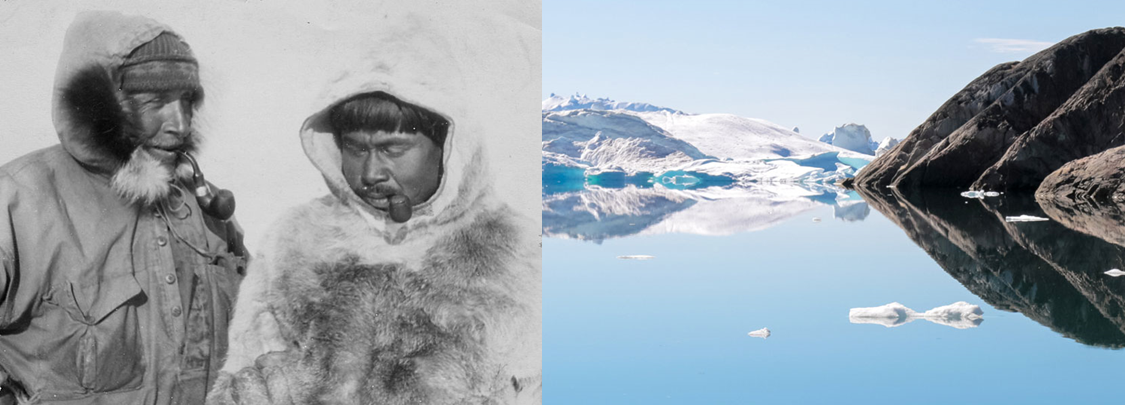Within the project ‘WEG_Re – Centennial Climate Drivers of Glacier Changes in Greenland’ we announce two PhD positions (3 years), who will work as a team in an interdisciplinary manner with focus on climate research and data science.
The project seeks to make use of a unique glacio-meteorological monitoring that had taken place in West Greenland between 1929 and 1931 under the lead of Alfred Wegener. Among many other geophysical aspects, detailed weather and ablation records are available and cover the core of the Early 20th century Arctic warm period. After almost a century of strong glacier changes, we now will set up modern automated weather stations and high-resolution ablation measurements and supplement those with innovative UAV-based atmospheric measurements.
PhD position 1 at University of Graz
One PhD candidate will be affiliated at Graz University and the thesis will be embedded in the Graz University Doctoral School.
Qualifications for PhD1 will ideally include several of the following:
- Master’s degree in Physical Geography, Meteorology, Climate Science or similar fields of study
- Understanding of glacier/climate interaction
- Experience with reanalysis data, treatment and uncertainties
- Experience with atmospheric measurements, ideally using innovative methods (UAV-based platforms, etc.)
- Experience and practical proficiency with programming languages and tools (e.g., Python, R, etc.)
- Analytical and interdisciplinary thinking as well as independent and structured work
- Excellent communication and teamwork skills
- Field skills in challenging environments (glacier travel, remote expeditions)
- Very good knowledge of English in both spoken and written
Tasks include:
- carry out archival work in order to make the historical data available and usable
- set meteorological records in relation to atmospheric conditions using reanalysis data
- contribute to design of and participate in exciting field campaigns to West Greenland with the ambition to produce innovative and high-quality monitoring and validation data
- determine and quantify mass and energy balance gradients along a West Greenland outlet glacier
- quantify high-resolution geometric changes of the ice surface based on UAV DEM acquisition
- quantify geometric feedback on ice ablation rates.
PhD position 2 at Know-Center
One PhD candidate will be affiliated at Know-Center with focus on machine learning evaluations of the project data. The thesis is linked to existing research at the center and will be supervised at the Doctoral School of Computer Science at Graz University of Technology. Both PhD candidates are expected to work together closely.
Qualifications for PhD2 ideally include several of the following:
- Master’s degree in Computer Science, Information and Computer Engineering, Physics, Mathematics, Climate Science or similar fields of study
- Experience with machine and deep learning approaches (especially with respect to multivariate time series, image processing, spatio-temporal analysis, explainable AI, etc.)
- Experience with meteorological and/or remote sensing data sets
- Experience and practical proficiency with programming languages and tools (e.g., Python, R, etc.)
- Analytical and interdisciplinary thinking as well as independent and structured work
- Excellent communication and teamwork skills
- Very good knowledge of English in both spoken and written
Tasks include:
- Carry out archival work in order to make the historical data available and usable
- Imputation and analysis of multivariate data sets
- Combining machine learning and domain specific knowledge (‘hybrid models’)
- Combining image recognition with time series data
- Apply explainability methods to identify physical drivers in complex meteorological processes
There will be the opportunity for exciting field work and collaboration with other research projects as well as the potential to shape the content of the project as it evolves. We offer a dynamic work environment with highly qualified and motivated colleagues, comprehensive and interdisciplinary support for your dissertation project and opportunities for professional and personal development.
For more information, please contact jakob.abermann(at)uni-graz.at (general information on the project and PhD1) and atruegler(at)know-center.at (PhD2).
Applications including a CV, a statement of motivation and the name of 2 referees should be sent to jakob.abermann(at)uni-graz.at (PhD1) and career(at)know-center.at (PhD2) by 15 February 2022.
